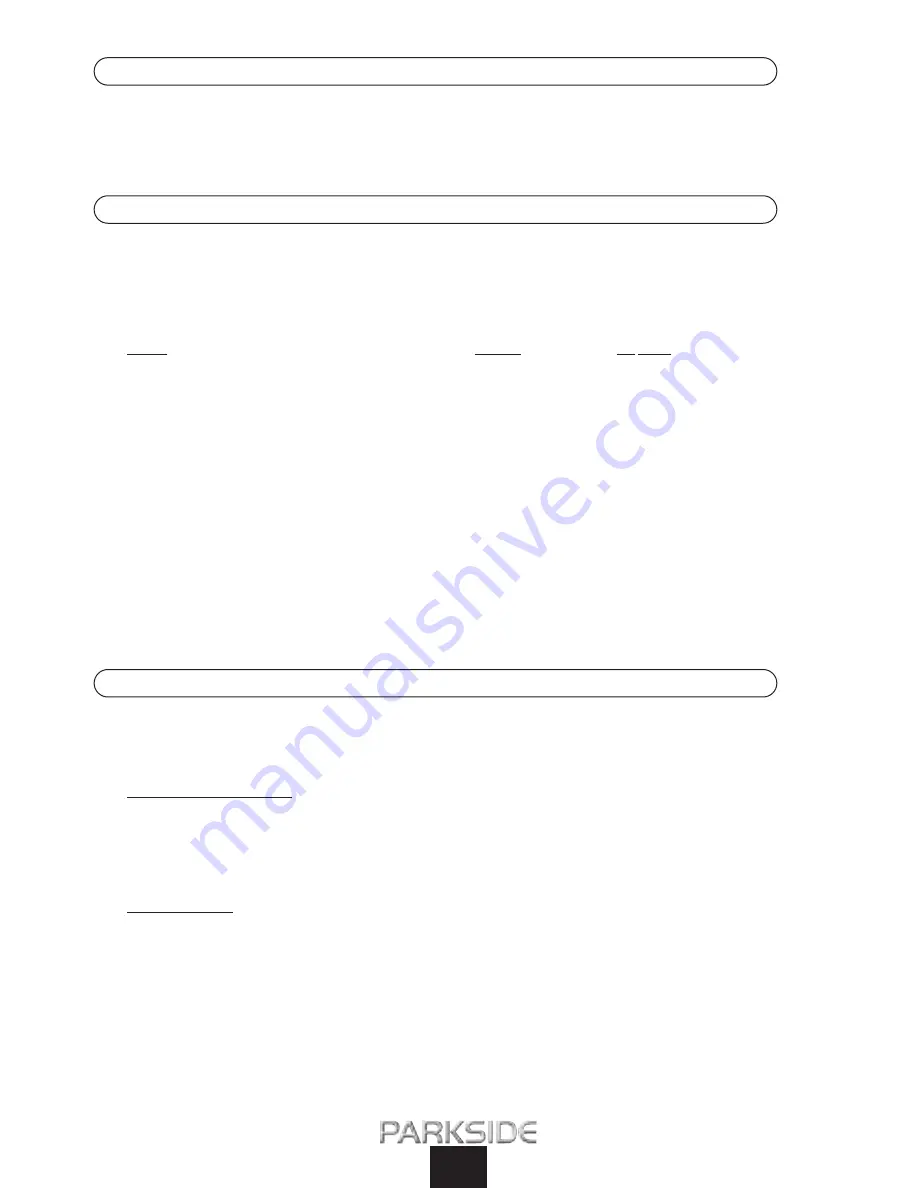
HANDLING
THE CIRCULAR SAW
1. Switch on the motor as described in the section "On/off switch" and then set the front edge of the guide plate
down on the material.
2. Align the circular saw with the parallel guide
or with a drawn cutting line.
3. Hold the circular saw with both hands on the handles
and saw using moderate force.
SETTING THE
SPEED
Using the following advisory settings as a guide, set the rpm on the electronic control wheel
to an appropriate value. Turn the wheel
until the required rpm setting is opposite the arrow marking (
).
(1 = lowest rpm to 4 = highest rpm):
Material
Thickness
rpm setting
Hard- and softwoods (natural wood) with & across grain
to max. depth of cut
4
Chipboard, hardboard
5 - 20 mm
3-4
Chipboard
greater than 20 mm
4
Veneered plywood, plywood
2 - 20 mm
3
Coated and veneered board
to max. depth of cut
4
PVC board
up to 30 mm
2
Acrylic sheet, Plexiglas
up to 25 mm
2-3
Aluminium sheet
2 - 12 mm
2-3
Aluminium sections
1.5 - 3 mm
2-3
Plasterboard
all thicknesses
1-2
Rock wool board
all thicknesses
1
Cement bound woodwool board
up to 20 mm
1
FITTING/REMOVAL AND SETTING OF THE
REAMER
Caution: The distance between the reamer and the saw blade is not to be more than 5 mm. If the reamer is removed e.g. for plunging
then this distance must be reset.
Fitting/removal of the reamer (
):
1. Release the wing nut on the depth stop and swing the saw to meet the stop. This reveals the fastening screw for the reamer and loosens it.
2. Screw out the fastening screw
and remove the reamer.
CAUTION / IMPORTANT: After plunging, the reamer must be refitted before further use.
Setting the reamer (
):
The distance between the reamer and the saw blade teeth is to be set to 5 mm max. and the gap between reamer and the deepest point
of the saw blade is to be set to 5 mm max.
1
10











































